- Home
- Alice Hoffman
Angel Landing Page 17
Angel Landing Read online
Page 17
“If there’s one thing I’ve always wanted to do in my life, it’s ride in one of these modern sports cars,” Yolanda said to me. “Of course, we couldn’t go too fast, but I have a good imagination.”
“Our father always had Fords,” Evie added. “If someone even mentioned the word Chevrolet, he would spit on the floor.”
“He wouldn’t really spit,” Yolanda said, annoyed at her sister. “He would just look nauseated.”
When I left the parlor in search of coffee, all three were arguing about automobiles, though none of them had a driver’s license any more, and none would ever drive a car again. In the kitchen, the coffee was on the back burner, and Minnie was carefully removing a sweet-potato pie from the oven.
“As soon as Finn sees those old folks he’ll leave,” I sighed as I poured coffee.
Minnie turned to me and placed a hand on her hip. “I wish you wouldn’t call my friends the ‘old folks.’ Why don’t you set the table? There’s so much work to be done that if I hadn’t been eating the proper diet for so many years I’d probably have a heart attack right now.”
The large dining room off the hallway had not been used since the last group of Lanskys ate potato pancakes and applesauce there a decade ago. I set out the best china, the silver spoons, the linen napkins. While I was searching for a platter, Beaumont crept into the dining room like an old spy. He was dressed in his gray uniform and wearing his usual daytime sunglasses, which were strung together with wire across the back of his head to make certain his eyes were protected from the unaccustomed sunlight.
“There’s someone at the door,” Beaumont said as I pulled a platter from the drawer. “Lord knows what he wants, but he looks pretty damn familiar.”
We peered out of the dining room to the front door, which Beaumont had left slightly ajar. Michael Finn stood out on the porch.
“Oh, Beaumont,” I said, dropping the crystal platter into the old boarder’s hands. “You know him. The bomber.”
Michael Finn’s hair was combed back; he wore a black sports jacket and new blue jeans, and he carried a bunch of yellow chrysanthemums.
“I thought I would never see you again,” I said softly when I met Finn at the door.
“Your aunt invited me to dinner,” Finn said, but he didn’t make a move to walk through the door. I went outside to stand with him on the porch.
“Don’t feel that you have to be polite,” I said. “Don’t feel that you must accept my aunt’s invitation.”
Finn’s eyes were ringed with circles and his face was drawn. “The trial date has been set for next week,” he said. “LeKnight called me yesterday.”
“Then you should prepare for it.” I was afraid to look at Finn for too long, and just as afraid that he would turn and run. “Maybe you’d rather go home.”
“I want to talk to you,” Finn said, shifting his weight from foot to foot.
But instead of talking, we merely stood on that porch trying to ignore the wind that rose off the harbor. We might have stood there for a very long time if Arthur had not come to investigate the open door.
“Get inside on the double,” Arthur said; he reached for my arm and handed Finn a glass of sherry to combat the weather. “Young people never understand the consequences of pneumonia,” Arthur said, leading us into the parlor. “Too much cold air and your lungs just give up, they can’t handle the strain.”
When Minnie saw that Finn had arrived, she rushed over to him. “I’m so glad you could make it,” she said as she took his hand. And then, by way of introduction, she called out to Arthur and the sisters, “Michael’s the fellow who’s been accused of causing the power plant explosion.”
“Minnie,” I cried, but Finn looked relieved. He didn’t seem to mind if everyone in the room knew his true identity, he even smiled as he handed Minnie the yellow chrysanthemums.
“You must be extremely busy,” Arthur said admiringly to Finn. And from that moment, until dinner was served, Arthur followed on Finn’s heels, using every bit of his sparse legal vocabulary. When Minnie announced that dinner was ready and waiting, it was Arthur who led Finn into the dining room. I followed behind the sisters, while behind us Beaumont slunk along in the shadows, carefully avoiding each unshaded window. If Minnie had not sent us to our seats, Finn and I might have sat on the opposite sides of the table, nodded goodbye after the meal, and never have spoken. But Minnie firmly directed us to chairs next to each other, where we stood until she carried the main dish of eggplant stuffed with black mushrooms.
“Ah!” Arthur said when Minnie appeared, and he sniffed appreciatively.
Beaumont pushed his sunglasses down on his nose and sighed. “No turkey,” he said sadly.
“Who needs turkey?” Minnie said gaily. “We have a totally carcinogen-free meal.”
We circulated Minnie’s specialties: banana bread, sweet-potato pie, and deviled tofu. I passed each dish to Finn without looking at him, because I could feel him next to me. I grew confused and handed him more and more food until Finn’s plate was piled high with seconds when everyone else was just taking a first bite.
“The best food I’ve ever tasted,” Arthur said, raising a forkful of sweet potatoes to salute Minnie.
“Not one additive,” Yolanda said admiringly.
Beneath the table, Finn suddenly reached for my hand. My breath grew shallow, my pulse was so loud that I was afraid everyone could hear its wild beat. But no one turned to look at me, no one pointed a finger; Beaumont continued to munch banana bread, and Evie poured cider for herself and her sister.
“I’ve thought about what you said,” Finn told me. “I think I was wrong to ask you to leave my place.”
“Oh, I don’t know about that,” I shrugged, not wanting to draw the others’ attention to us. “You seemed pretty certain of what you wanted. And didn’t want.”
“I wanted you to stay that day,” Finn said. He lifted my hand to his mouth and kissed my palm so quickly, so lightly, I might easily have imagined it, but Evie noticed and clapped her hands.
“Oh, my! How European,” she cried happily.
Minnie had also seen that tentative kiss. “My husband Alex,” she said, “was the sort of man who would kiss a woman’s hand. He had an appreciation for beauty.”
“You understand I’m not saying I’m in love,” Finn told me. “Nothing like that.”
“When I was very young,” Evie said, “I was in love. He had red hair. Red as blood. But he wasn’t what anyone would call a gentleman. He was a fellow who couldn’t stop at a woman’s hand—he went straight to the mouth. All women, women he had just met, he would kiss them right in front of me just as easy as eating an apple.”
“That’s true,” Yolanda said. “I remember him.”
“James,” Evie nodded. “I canceled our engagement. I had to. The man couldn’t control himself. He wasn’t exactly a gentleman.”
“No,” Minnie agreed. “He sounds like a lady-killer.”
“But his red hair was beautiful,” Evie said. “I can still remember how people would turn and look at him in the street.”
“But the truth is,” Finn went on, “I wanted to be with you then, and I want to be with you now.”
“Red hair always goes with a fiery personality,” Arthur pointed out to Evie. “What folks call myth is often based on reality. You’d better believe it.”
“But you don’t feel anything for me?” I said.
“I wouldn’t say that,” Finn smiled. “I told you I wanted you.”
Arthur poked my arm. “Lucky for you this boy’s not a redhead.” He smiled. “Then you would surely have trouble.”
Maybe I only imagined myself in love with Finn. After all, how much did I really know about him? Perhaps I had even picked him because I knew a man with his past could never have a future that included me. All my thought of romance might have been only to disguise pure desire.
“You’re talking about sex,” I said.
“If I had ever seen your ex-fianc
é kissing another woman, I would have given him a piece of my mind,” Arthur told Evie.
“You,” Minnie shrugged. “You’re from the old school.”
“A gentleman is a gentleman,” Yolanda said. “Those rules never change.”
“Well yes,” Finn said. “But I want you to understand I can’t make a commitment to you. I may disappear tomorrow.”
“Watch,” Arthur said. “Those two are made for each other.”
“Love,” Minnie said, and we all turned toward her and she sat stiffly at the head of the table, pursing her lips as if to begin a psalm or a prayer. “You sure can’t ignore it.”
The sisters and Arthur nodded their agreement, and Beaumont slipped his sunglasses down to take a look at Michael Finn and me.
“I want to spend the night with you,” I whispered to Finn.
“Only if you understand there won’t ever be anything more,” he said.
But I knew I would want more. One night with Michael Finn in my bed could only pull me closer to him; already, before there had been one kiss, I was ready to wait for Finn on the courthouse stairs, and without one promise to sustain me I was ready to stand outside high prison walls. “No romance,” I agreed.
“Romance,” Yolanda said dreamily.
“Dessert.” Minnie signaled me with a nod of her head to join her in the kitchen.
“Do you think I’m making a mistake?” I asked as we scraped the dishes into the barrel of biodegradable trash. “Do you think I should ask him to spend the night?”
“Who am I to tell you what to do?” Minnie asked.
“You’re right,” I said, gathering dessert plates and the pumpkin pie onto a silver serving tray. “I have to make my own decisions. If I get hurt, at least I was honest, at least I gave it a chance.”
“If I were you I would get a commitment.” Minnie pointed to the gold wedding band she still wore. “It never hurts.”
“You call that a commitment?” I laughed. “Do you know how many marriages end in divorce? A commitment nowadays has to be a commitment of the soul.”
“All right,” Minnie nodded as she picked up the serving tray and headed for the kitchen door. “Then I’d get one of those.”
But if I tried for that, Michael Finn would shrug ruefully and walk right out the door. It was my decision to accept Finn as he was. No one forced me up the stairs with him late that night. I had plenty of time during dessert to recant; the end of dinner was so quiet that I could hear the rustling of the lace tablecloth each time Finn moved, and the faint whistling sound in Evie’s lungs every time she inhaled, no doubt remembering the man with the red hair. When dinner was over and Minnie’s friends retired to the parlor before returning to the Mercy House, Finn and I found ourselves alone in the kitchen.
“You understand my situation,” Finn said as he dried the dishes. “I’m not very stable. I may soon be going to jail.”
“Oh, jail,” I said with a wave of my hand.
“Not only that,” Finn confided as he put down his dish towel, “I can’t take any risks.”
“And there may be an earthquake, a tornado, a plague.” I smiled as I put away the last silver spoon. “I’ll take a chance,” I said.
But when Beaumont had left to drive Arthur and the sisters back to Mercy, and Minnie had curled up in the parlor to write to Congressman Bruner, taking a chance seemed like a crazy thing to do. Natural disasters were one thing, the losses of earthquakes and floods were unavoidable. But the unnatural losses I would face if Finn left me could still be avoided. I simply had to send him home. I thought of this as Michael Finn and I walked up the stairs to the second floor, but every step made turning back more and more impossible.
In my room, the curtains waved. I looked around as if the room belonged to someone else, as if I had never been there before. The metal bedframe stood in its place and the mattress was covered with the same goosedown quilt. When I took off my shoes and socks, the wooden floor was the same one I walked across every night, but when I closed the bedroom door I felt as anxious as if I had stepped into a lonely motel.
Finn turned away while I undressed. I could not remember a night so cold; even when I was in bed, between the sheets, I could not get warm. Finn crossed the room to undress in privacy. Every move took forever, every move echoed; his boots fell with a thud onto the floor, the clothes he set on the chair sighed as if they had a will of their own. When Finn pulled back the quilt, the chill was piercing, but once he was in bed, there was suddenly a line of heat between us etched into the mattress.
Finn leaned his head against the wall and looked up at the ceiling for such a long time that he might have been meditating, and not even the shrill whistle of the train as it traveled toward the last stop pulled him back. Though he looked like marble, his hands had begun to shake, tension drifted beneath his skin. I reached over and touched him.
“I don’t think I can,” Finn said, moving my hand away.
I went back to my side of the bed and sighed.
“It’s not that I don’t want to,” Finn said. “That’s what I came here for.”
“Are you certain?”
“It’s your aunt,” Finn told me. “We’re not really alone.”
“Minnie has gone to sleep by now,” I said, wondering if Finn had forgotten just who had invited him to dinner in the first place.
“I’m too nervous,” Finn said.
I got out of bed and slipped on my robe. “I’ll check to see if she’s asleep,” I told Finn. I was sure I would find Minnie in her room, exhausted from the day’s work, but when I opened her door the bed was empty. I went down the stairs in search of my aunt, nearly forgetting that Michael Finn waited in my bed. I worried about heart attacks and angina; I might find Minnie sprawled on the bottom step. I walked stealthily, as if the Lanskys who had spent summers in the second-floor bedrooms might try to follow me down the stairs, watching and pointing as my robe flapped around my legs.
By the time I reached the parlor I was out of breath and convinced that some disease of old age had come upon my aunt. But though the parlor was freezing and Minnie’s fingers were white as stones, when I bent over the easy chair where she had fallen asleep, I could hear her slow, regular breath.
“Go upstairs to bed,” I whispered.
Minnie sighed and buried her head in the pillows of the easy chair. I did not want to frighten her or interrupt any dreams. So instead of waking her, I added some logs to the fire in the stove. Then I went to the linen closet to get an afghan which had been knitted by a Lansky who came all the way from San Diego one summer. When I had covered Minnie and checked the fire in the stove, I poured myself a glass of Scotch and sat on the couch.
“I suppose everybody makes mistakes,” I said to my sleeping aunt. “I guess everyone has to take a risk now and then,” I told her.
Minnie turned and pulled the afghan closer to her chin.
“Falling in love is like falling asleep,” I said to Minnie. “It just happens,” I nodded as I sipped the Scotch. “For all you knew, Alex might have made your life miserable. Poets have that tendency; it happens all the time. You just took a chance. Well, who can fault you for that, who can say you didn’t have any courage?”
I sat on the couch even after I had finished my drink; I watched Minnie sleep as if I might learn something from her dreams, although I would never be able to know more than I could guess. But when I left the parlor and walked back up the stairs, I felt as though I had been held by Minnie and then given a gentle shove, although the only move she had made was to turn in her sleep. When I returned to my room Finn was sitting on the edge of the bed. I slipped off my robe and got back into bed, wondering if Alex had helped Minnie sew the quilt; together they might have sat up late at night and counted stitches and feathers till dawn. “She’s asleep,” I said to Finn.
“She could wake up,” Finn said. “Anything could happen,” he said. “Anything.”
“You can leave if you want to,” I said.
; He got up and began to pace, but carefully so that the creaking floorboards would not wake the old woman downstairs in the parlor. “I’m going to be honest with you,” Finn said when he returned to the bed, and I slipped out to sit next to him. “This is it. Just this one night.”
“All right,” I agreed. “I already know that.”
“I’m serious,” Finn warned. “No long affair, not even a relationship. After tonight I might see you on the street sometime and turn to walk in the other direction, as if we never knew each other. Just tonight,” Finn said. “Only tonight.”
I reached out to touch him, and when I did, Finn placed his hands on my shoulders as if he might suddenly push me away, but instead he pulled me toward him and we lay together on top of the handmade quilt. We held onto each other like people who were afraid of drowning, people who might never see each other again. And I was drowning, over and over again; when he moved his tongue over my skin nothing else mattered, and when he came inside me I didn’t think about the future, I didn’t care about the risks. With every shudder, time dropped farther and farther away, the seconds stood still, held motionless with desire, caught by kisses and white heat.
“If I want to,” Finn whispered to me, “I can pretend that we never met. I can pretend that none of this ever happened.”
I didn’t care, I refused to take his warning to heart. Instead I lay back in the bed which had always reminded me of summer; beneath the Russian quilt, in front of every Lansky ghost, I had to admit I never wanted the night to end.
In the morning, when Beaumont had finally quit his nighttime hammering, Finn and I made love again. When we moved together I was certain that we could forget the future and the past, we could keep clocks from ticking. The sun rose over the harbor that day, but neither of us saw it; beneath us the floorboards creaked, the bed swayed on its metal legs, and there was no place outside of those bedroom walls either of us wanted to be.
DEAD OF WINTER
ONE
IN DECEMBER, THE TRIAL began. If Carter hadn’t returned from New Hampshire and insisted that I attend the trial from the start, I might not have gone to court at all until I was subpoenaed.

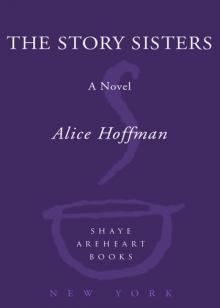 The Story Sisters
The Story Sisters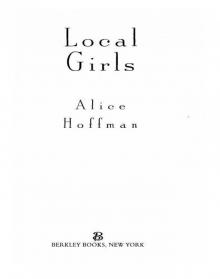 Local Girls
Local Girls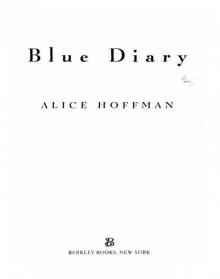 Blue Diary
Blue Diary The River King
The River King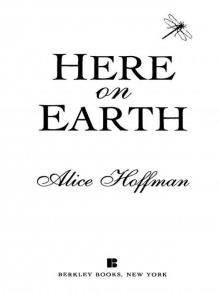 Here on Earth
Here on Earth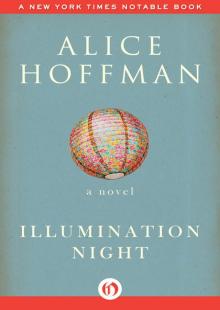 Illumination Night: A Novel
Illumination Night: A Novel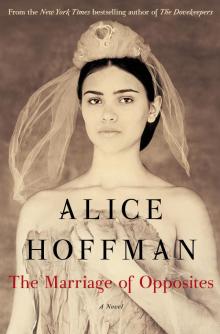 The Marriage of Opposites
The Marriage of Opposites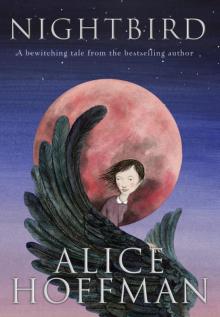 Nightbird
Nightbird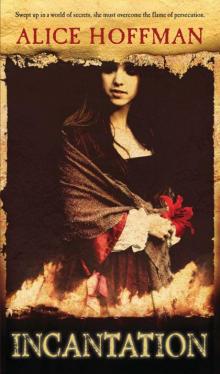 Incantation
Incantation Skylight Confessions
Skylight Confessions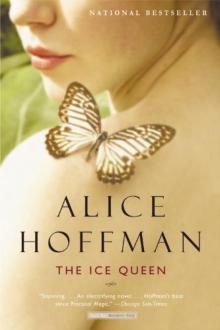 The Ice Queen
The Ice Queen Second Nature
Second Nature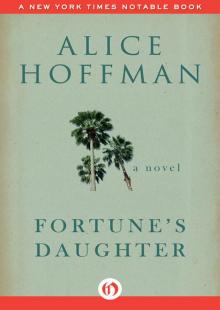 Fortune's Daughter: A Novel
Fortune's Daughter: A Novel Seventh Heaven
Seventh Heaven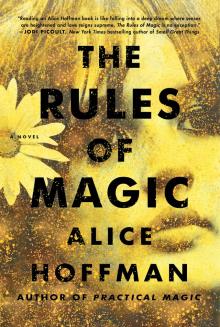 The Rules of Magic
The Rules of Magic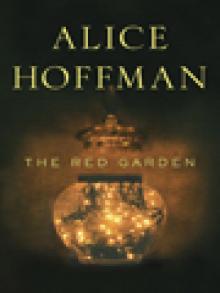 The Red Garden
The Red Garden The Third Angel
The Third Angel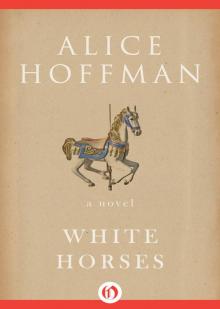 White Horses
White Horses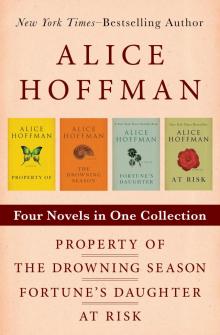 Property of / the Drowning Season / Fortune's Daughter / at Risk
Property of / the Drowning Season / Fortune's Daughter / at Risk Angel Landing
Angel Landing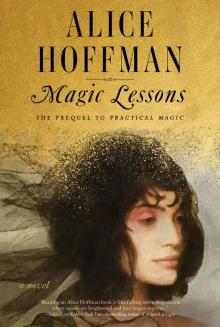 Magic Lessons
Magic Lessons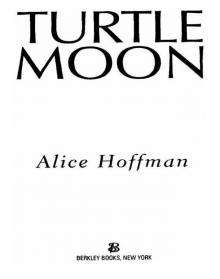 Turtle Moon
Turtle Moon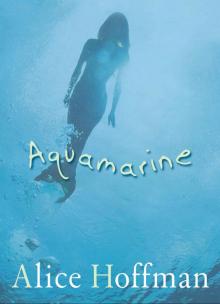 Aquamarine
Aquamarine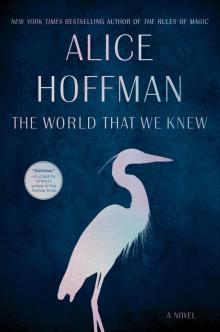 The World That We Knew
The World That We Knew Faithful
Faithful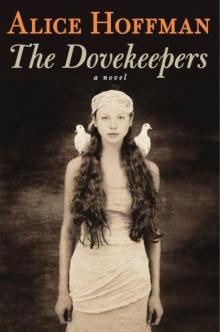 The Dovekeepers
The Dovekeepers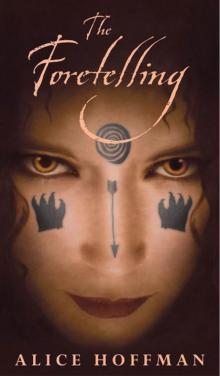 The Foretelling
The Foretelling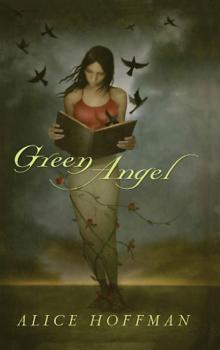 Green Angel
Green Angel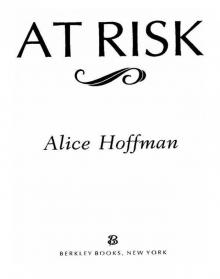 At Risk
At Risk Green Heart
Green Heart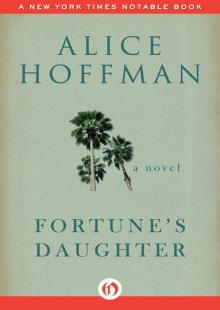 Fortune's Daughter
Fortune's Daughter Faerie Knitting
Faerie Knitting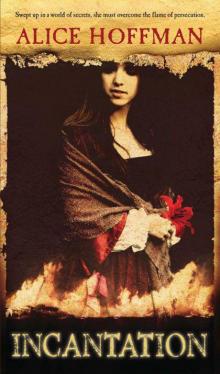 Incantation (v5)
Incantation (v5) Green Witch
Green Witch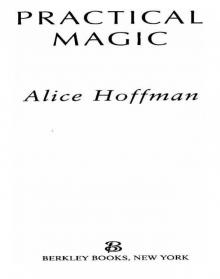 Practical Magic
Practical Magic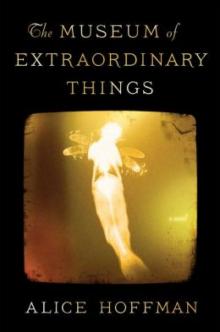 The Museum of Extraordinary Things
The Museum of Extraordinary Things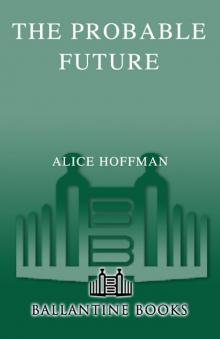 The Probable Future
The Probable Future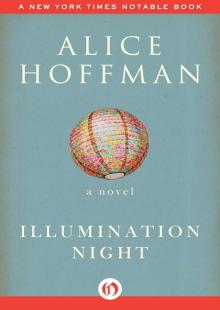 Illumination Night
Illumination Night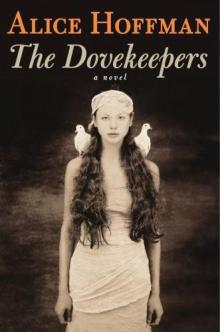 The Dovekeepers: A Novel
The Dovekeepers: A Novel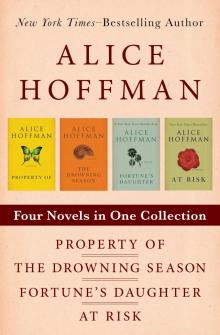 Property Of, the Drowning Season, Fortune's Daughter, and At Risk
Property Of, the Drowning Season, Fortune's Daughter, and At Risk